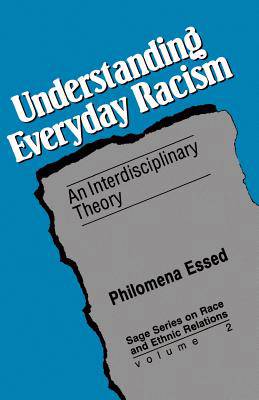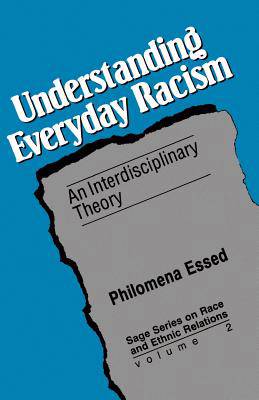
- Retrait gratuit dans votre magasin Club
- 7.000.000 titres dans notre catalogue
- Payer en toute sécurité
- Toujours un magasin près de chez vous
- Retrait gratuit dans votre magasin Club
- 7.000.0000 titres dans notre catalogue
- Payer en toute sécurité
- Toujours un magasin près de chez vous
Description
While there are numerous studies of racism and racial inequality at the macro-level of analysis, there has been little work done on the experience of everyday racism for black people. Philomena Essed′s brilliant work fills this gap. This landmark volume compares contemporary racism in the United States and the Netherlands through in-depth interview data from more than 2,000 experiences of black women. As an interdisciplinary analysis of gendered social constructions of racism, it breaks new ground. Essed problematizes and reinterprets many of the meanings and everyday practices that the majority of society has come to take for granted. She addresses crucial but largely neglected dimensions of racism: How is racism experienced in everyday situations? How do black women recognize covert expressions of racism? What knowledge of racism do black women have, and how is this knowledge acquired? How do they challenge racism in everyday life? To answer these questions, over two thousand experiences of black women are analyzed within a theoretical framework that integrates the disciplines of macro- and micro-sociology, social psychology, discourse analysis, race relations theory, and women′s studies. Samples include only black women with higher education. Many of their experiences of racism involve the "elite" among the dominant group. The book seriously challenges both the notion of Dutch tolerance and the idea that U.S. racism is a problem of the past. With this concept in mind, Understanding Everyday Racism is urgent reading. Essed′s volume represents a landmark in the study of race and ethnicity and will interest researchers, lecturers, students, and professionals of discourse analysis, policy and women′s studies, sociology, psychology, management, psychotherapy, and qualitative methodology. "Without getting bogged down in nit-picking about the definition of racism, the author has succeeded in presenting the true face of racism and has investigated the sociology and psychology of racism. A marvellously subtle and skillful report of everyday racism." --Counselling Psychology Quarterly "In this provocative book, Philomena Essed weaves insights from psychology, sociology, discourse analysis, and women′s studies into an original and important new theoretical framework. She combines a phenomenological approach of describing the experiences of individuals with a structural account of inequality." --Contemporary Psychology "Racism remains a contested concept in both popular and scholarly discourse. Typically unaware of the extent of institutionalized racism, whites generally deny that racism exists. People of color typically see things differently and interpret the dominant group perspective as insensitive and insincere. Philomena Essed′s groundbreaking volume, Understanding Everyday Racism tackles this ambiguity surrounding both popular and scholarly interpretations of racism and sheds considerable light on the difference between dominant and subordinate group views. . . . Essed′s volume makes an extremely important and unique contribution to our understanding of contemporary racism." --Contemporary Sociology
Spécifications
Parties prenantes
- Auteur(s) :
- Editeur:
Contenu
- Nombre de pages :
- 336
- Langue:
- Anglais
- Collection :
- Tome:
- n° 2
Caractéristiques
- EAN:
- 9780803942561
- Date de parution :
- 01-08-91
- Format:
- Livre broché
- Format numérique:
- Trade paperback (VS)
- Dimensions :
- 139 mm x 224 mm
- Poids :
- 439 g

Les avis
Nous publions uniquement les avis qui respectent les conditions requises. Consultez nos conditions pour les avis.






